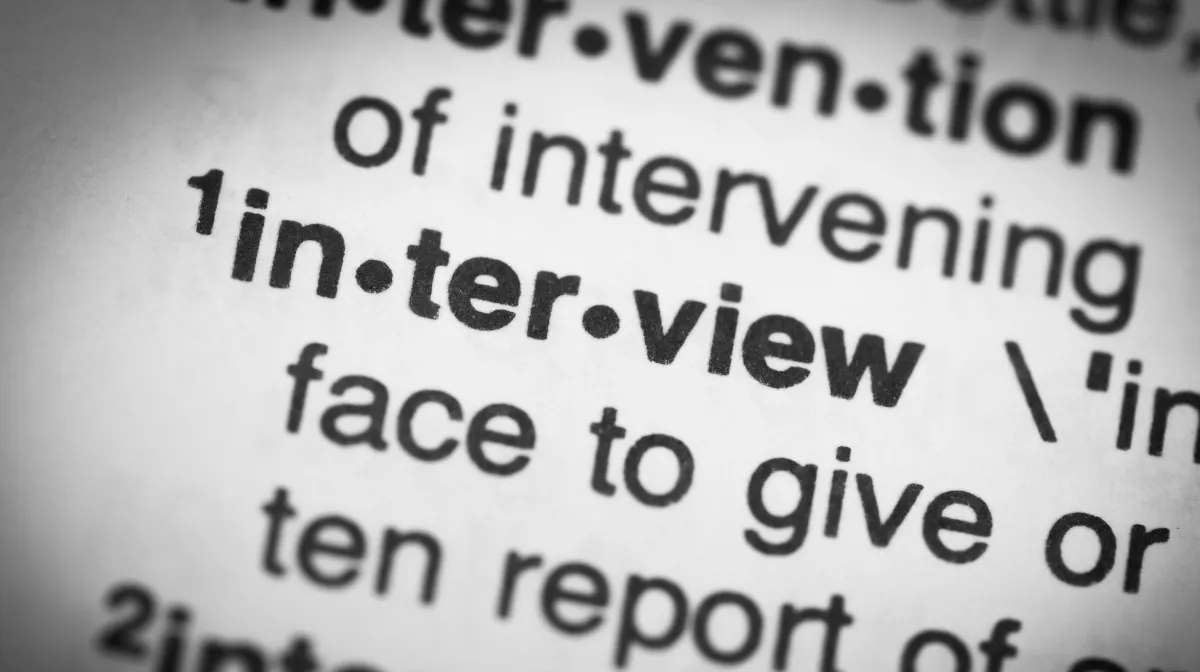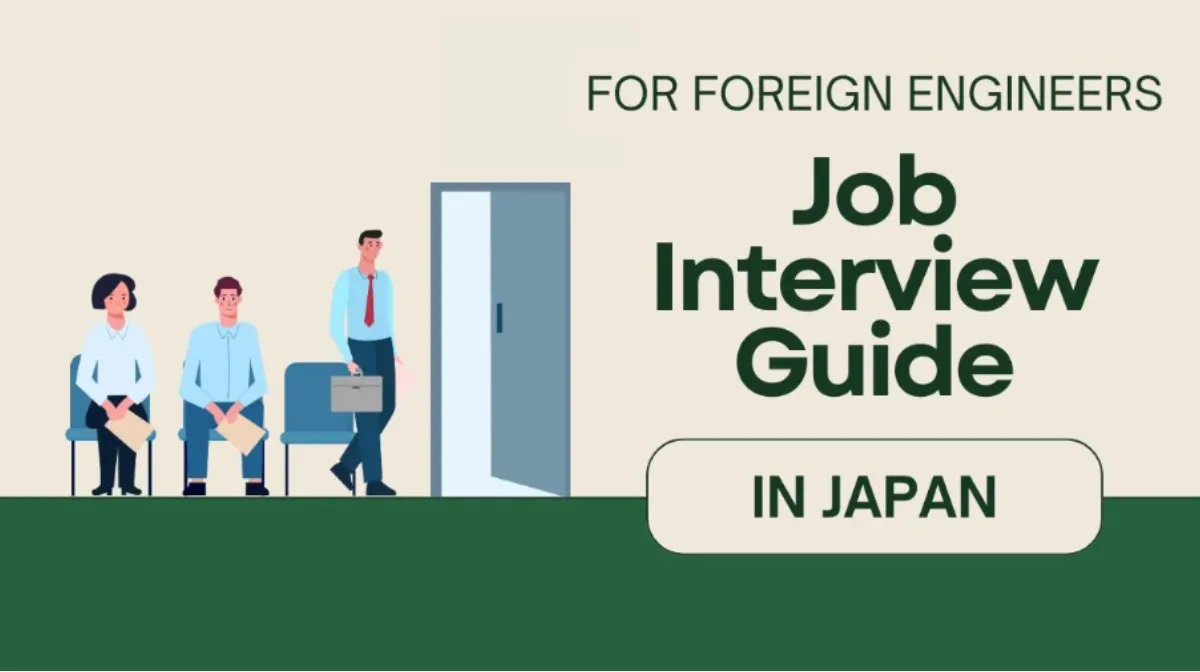Foreign engineers face numerous challenges when job hunting in Japan. Language barriers, cultural differences, and varying interview styles present significant hurdles to overcome.
However, with proper preparation and strategy, these challenges can be conquered, opening doors to successful careers in Japanese companies.
This article introduces specific points for foreign engineers to succeed in Japanese job interviews.
- How to handle Japanese job interviews as a foreign engineer
- Ways to showcase your technical skills in Japanese companies
- Essential preparation steps for interview success
1. Challenges Foreign Engineers Face in Japanese Interviews

Japanese interviews have distinct characteristics that differ from those abroad. Foreign engineers often face these three main challenges:
Language and Communication Barriers
Communication issues are inevitable when foreigners interview in Japan.
This is particularly challenging for those who aren’t proficient in Japanese, as they may struggle to effectively convey their thoughts. Even for those who can speak Japanese, understanding Japan’s characteristically ambiguous expressions can be difficult.
For example, the expression “ii desu” can mean both “good” and a polite refusal, which can be confusing for foreigners who are used to clear yes/no responses.
Additionally, Japanese often omits subjects, predicates, and objects in sentences.
For instance, questions like “Ashita no yotei wa?” (What about tomorrow’s schedule?) omit both subject and predicate. Understanding such Japanese-specific expressions poses a challenge for many foreigners during interviews.
Cultural Gaps
Many foreigners struggle with cultural differences. Let’s examine these differences
Japan
High-context culture (reading the atmosphere and understanding implicit intentions) Communication is based on the assumption that people share common recognition, knowledge, and cultural background. There’s often reliance on unspoken understanding, requiring interpretation of tone and facial expressions to understand omitted information.
Western countries, etc.
Low-context culture (everything is verbalized) In low-context cultures, all intended information is explicitly verbalized. This enables communication even without shared context, reducing the possibility of misunderstandings.
Differences in Interview Styles
Japanese and foreign companies emphasize different points during interviews. Those unfamiliar with Japanese interview styles often struggle.
Comparison of Interview Styles
| Japanese Companies | Foreign Companies |
|---|---|
| Emphasize personality, business manners, and communication skills in addition to ability | Focus primarily on ability |
| Relatively many interview questions | Questions mostly limited to skills and experience |
| Can take 30 minutes to an hour | Usually shorter duration |
One advantage of Japanese companies is that they might hire candidates based on future potential, even without extensive skills or experience. While this may seem more complex compared to foreign companies, understanding these key points is essential.
2. Succeeding in Technical Interviews

For foreign engineers to pass Japanese interviews, succeeding in technical interviews is crucial. Focus on these three areas.
Organize and Accurately Convey Technical Skills
Technical interviews are conducted to assess the candidate’s technical level. First, organize your technical capabilities.
List your years of engineering experience, programming languages you can use, certifications, and previous work experiences. Prepare to accurately communicate your technical skills.
Technical interviews often follow a question-and-answer format, so it’s important to prepare for anticipated questions and be able to explain your answers logically.
Showcase Technical Skills and Previous Experience
Technical interviews also require the ability to showcase your technical skills and previous experience.
When answering questions, it’s important to include specific details about your years of engineering experience, programming languages you can use, skills, and industries you’ve worked in.
If you possess skills that the company is seeking, make sure to emphasize these particularly. When highlighting desired skills, it’s effective to include specific examples.
Question Response Techniques
To succeed in technical interviews, it’s also necessary to master question response techniques.
Prepare to address these five areas, which are key to technical interview success.
Self-promotion
Focus on technical skills and previous experience. Keep it concise, 1-2 minutes.
Motivation for applying
Communicate what attracts you to the company and how you wish to contribute.
Reason for changing jobs
Avoid negative expressions. Frame it positively, such as career advancement.
Experience/Skills/Achievements
Prepare examples of project outcomes and how you improved from failures.
Questions for the interviewer
Ask questions that demonstrate your eagerness to contribute and succeed in the role.
■日本でエンジニアとしてキャリアアップしたい方へ
海外エンジニア転職支援サービス『 Bloomtech Career 』にご相談ください。「英語OK」「ビザサポートあり」「高年収企業」など、外国人エンジニア向けの求人を多数掲載。専任のキャリアアドバイザーが、あなたのスキル・希望に合った最適な日本企業をご紹介します。
▼簡単・無料!30秒で登録完了!まずはお気軽にご連絡ください!
Bloomtech Careerに無料相談してみる
3. How to Leverage Strengths as a Foreign Engineer

Many foreign engineers want to communicate their unique strengths in Japanese interviews. Here’s how to do it effectively.
Utilizing a Global Perspective
It’s effective to emphasize how hiring a foreign engineer can bring global perspectives to the company. Highlight how you can generate new ideas from viewpoints that might not be available with only Japanese employees.
It’s also recommended to emphasize your deep knowledge of your home country’s language and culture, which could help the company expand into new markets.
Explaining the Value of Diversity
Hiring foreign engineers with different cultural backgrounds brings diversity to the company. Explaining the value of this diversity is another way to promote yourself.
When promoting yourself, first explain how having foreign engineers in the workplace naturally helps employees become more aware of diversity through daily exposure to different viewpoints and ways of thinking.
Also, emphasize how the ability to think flexibly from diverse perspectives can lead to superior results in decision-making and market development.
Proving Technical Skills and Adaptability
Foreign engineers must also prove their technical skills and adaptability.
Regarding technical skills, try highlighting knowledge and skills gained through education in your home country that might not be available in Japan. Japanese companies also seek cultural adaptability in foreign engineers. If you have previous work or operational experience in other countries, emphasize this.
Some companies evaluate adaptability through group discussions. Prepare to demonstrate your ability to adapt to Japanese teams and carry out work effectively.
4. Winning Over Interviewers | 4 Elements Japanese Companies Seek

To win over interviewers, you should understand these four elements that companies seek.
Teamwork and Cooperation
Cooperation is essential for teamwork. During interviews, when asked about what you consider important in work, you’ll make a good impression by emphasizing how you respect team members’ opinions, thoughts, and positions.
It’s also effective to share examples of how you supported team members and helped projects succeed in previous roles.
Long-term Commitment
Japanese companies value candidates who show willingness for long-term commitment.
When asked about motivation
Include future goals you want to achieve at the company and your willingness to work hard.
When asked about how you’ll use your skills and experience
Best to answer with a career plan aligned with the job requirements.
Note: When asked how long you plan to stay in Japan, avoid giving false timeframes just because you think long-term commitment is expected.
Technical Skills and Eagerness to Learn
To win over interviewers, you must also demonstrate technical skills and eagerness to learn.
When asked about achievements or success stories, it’s recommended to share specific sales figures or awards. Companies often ask about skills you want to acquire to check your learning motivation.
When answering, include how you would apply these skills to your work to make a stronger impression.
When asked about future challenges: Explaining specific plans to overcome challenges also demonstrates learning motivation. When explaining plans, it’s effective to break them down into 1-year, 5-year, and 10-year stages.
Communication Skills
Japanese companies require high communication skills from foreign engineers.
What’s required during interviews
- Clear responses
- Polite language
- Proactive attitude
- Smooth interaction
It’s essential to have sufficient Japanese language skills to understand others’ thoughts and accurately convey your own opinions.
You must also learn business manners to communicate smoothly with customers and superiors. Make sure to learn IT-related technical terms and commonly used words in Japanese business settings.
■日本でエンジニアとしてキャリアアップしたい方へ
海外エンジニア転職支援サービス『 Bloomtech Career 』にご相談ください。「英語OK」「ビザサポートあり」「高年収企業」など、外国人エンジニア向けの求人を多数掲載。専任のキャリアアドバイザーが、あなたのスキル・希望に合った最適な日本企業をご紹介します。
▼簡単・無料!30秒で登録完了!まずはお気軽にご連絡ください!
Bloomtech Careerに無料相談してみる
5. Interview Preparation Plan

To succeed in Japanese interviews, thorough preparation is necessary. Start preparing about 4 weeks in advance, following these stages:
Early Preparation (2-4 Weeks Before)
By 4 weeks before, confirm all required documents. Since reissuing documents can take time if lost, it’s important to gather necessary documents early.
Required documents vary by company, so it’s best to confirm in advance.
Example of Required Documents
- Foreign resident registration certificate
- Work qualification certificate
- Residence card
- Passport
- Qualification certificates like Japanese Language Proficiency Test results
2 weeks before… Complete self-analysis, organize your strengths and weaknesses, and prepare your self-promotion. This is also the best time to complete company research. Prepare answers to anticipated questions about your motivation for applying.
Final Preparation (1 Week Before)
One week before, prepare your resume and CV. Include the following in your CV
For work history, list the duration, business content, and projects involved for each company. For skills, the key point is to specifically note how much practical experience you have.
- Name
- Submission date
- Work summary
- Work history overview
- Applicable experience and knowledge
- Qualifications and skills
- Self-promotion, etc.
For your resume, include these main items. Avoid mentioning potentially negative activities like gambling in the special skills/self-promotion section. The personal preferences section is for desired job content, location, and salary, but it’s common to write “Will follow company regulations”
- Basic information (name, current address, etc.)
- Education and work history
- Licenses and qualifications
- Special skills and self-promotion
- Personal preferences
Day of Interview Points
First impressions are crucial in interviews.
Attire, Items to Bring, and Timing
- Maintain a neat, clean appearance
- Dark colored suits (black, navy, grey) are preferred
- Bring necessary documents, writing materials, handkerchief, tissues, watch, smartphone, etc.
- Be punctual, arriving 5-10 minutes before the scheduled time
When entering
- Knock three times and wait for a response before entering
- Close the door, greet with a bow
- Wait for “Please sit” before saying “Excuse me” and taking your seat
During the interview
- Maintain eye contact, appropriate voice volume, and clear responses
When leaving
- Bow, walk to the door, say “Excuse me” before exiting
6. Succeed in Japanese Interviews Through Systematic Preparation
Succeeding in Japanese interviews requires not just technical skills but also cultural understanding and appropriate communication abilities.
The key to success is understanding what Japanese companies value while leveraging your strengths as a foreign engineer, all supported by systematic preparation.
In today’s increasingly globalized world, your experience and skills can be highly valuable to Japanese companies.

















